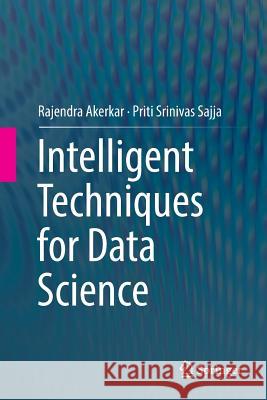Intelligent Techniques for Data Science » książka
topmenu
Intelligent Techniques for Data Science
ISBN-13: 9783319805146 / Angielski / Miękka / 2018 / 272 str.
Kategorie:
Kategorie BISAC:
Wydawca:
Springer
Język:
Angielski
ISBN-13:
9783319805146
Rok wydania:
2018
Wydanie:
Softcover Repri
Ilość stron:
272
Waga:
0.41 kg
Wymiary:
23.39 x 15.6 x 1.55
Oprawa:
Miękka
Wolumenów:
01
Dodatkowe informacje:
Wydanie ilustrowane











